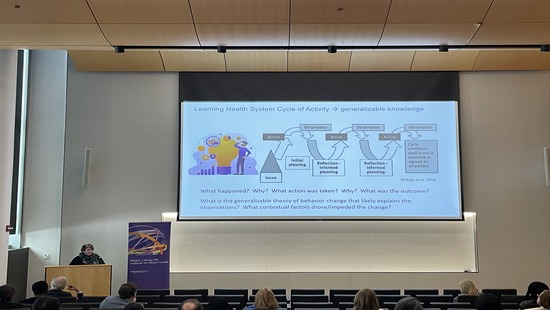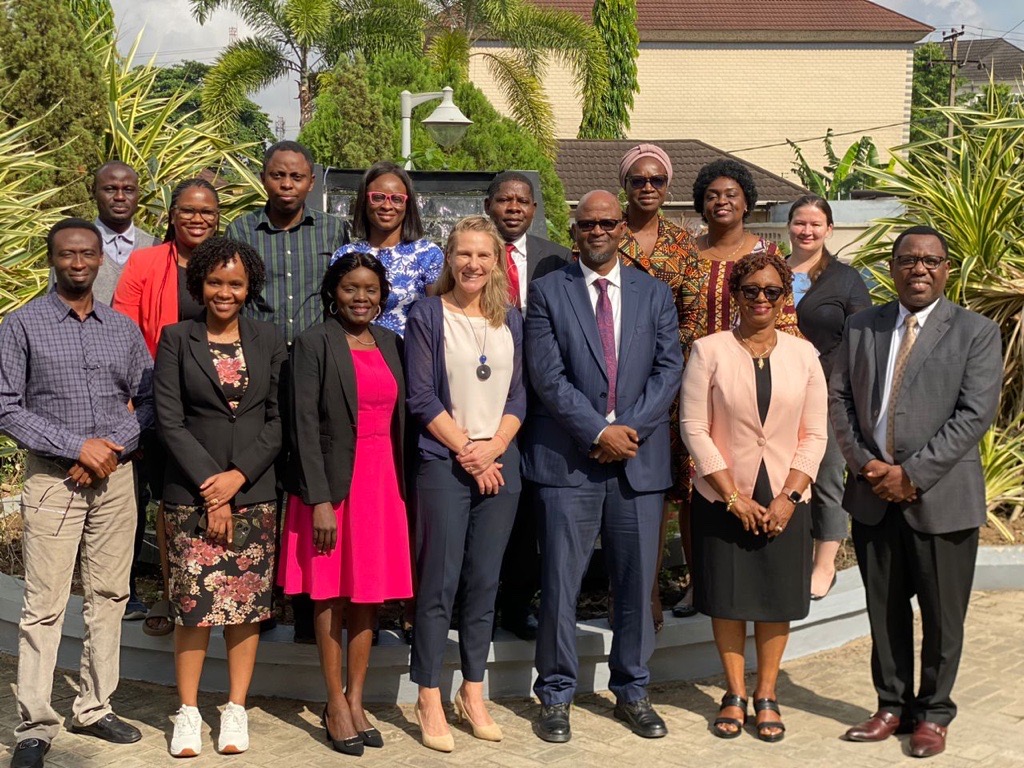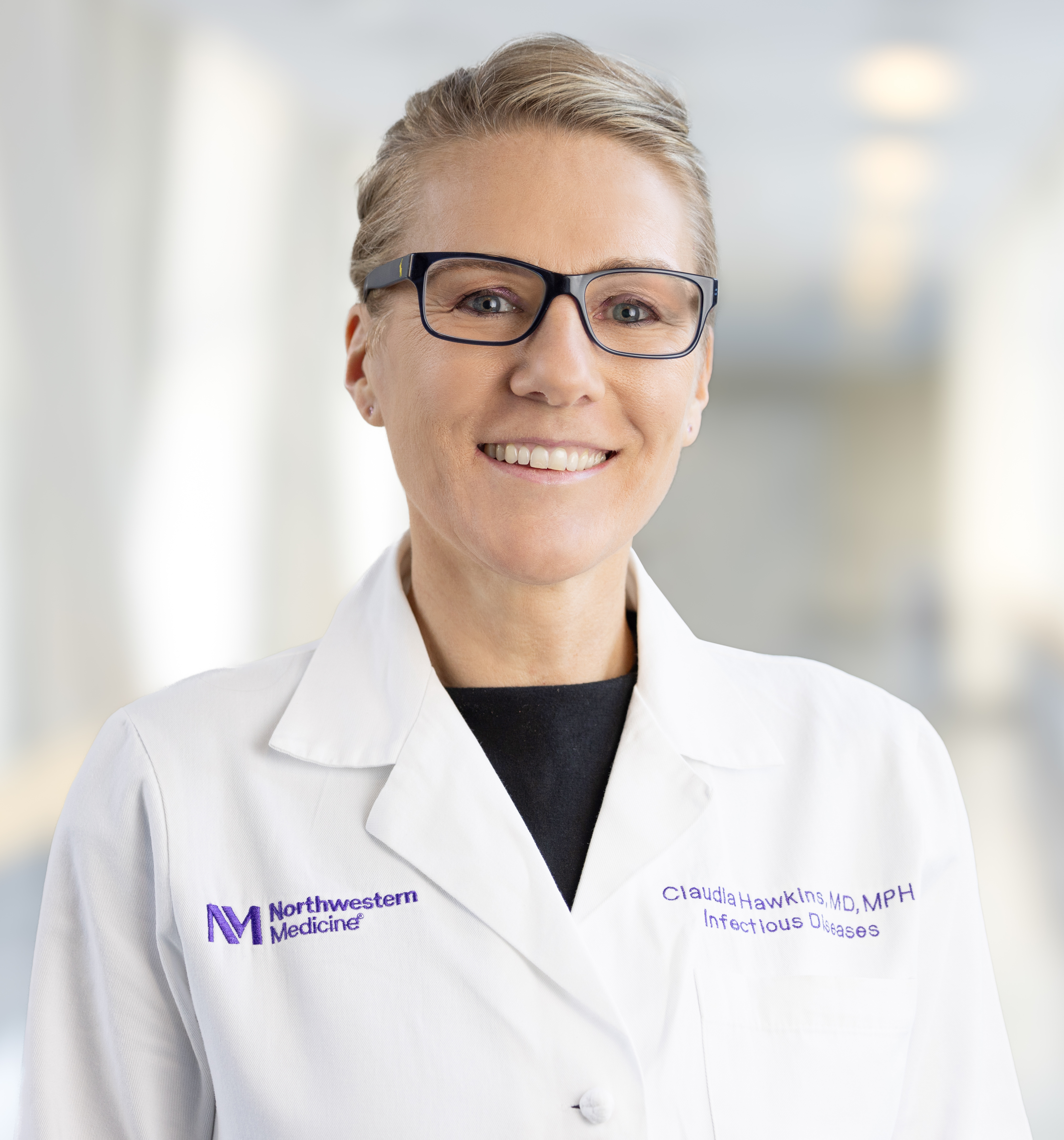Gravitt Discusses Cancer Health Disparities Research

In 2016, the World Health Organization sponsored a study revealing an estimated 4.5 million premature deaths from some types of Hepatitis could be prevented in low- and middle-income countries by 2030 through vaccination, diagnostic tests, medicines and education campaigns.
The Center for Global Communicable and Emerging Infectious Diseases team, led by its director Claudia Hawkins, MD, MPH, is leading collaborative efforts in Africa to provide critically needed data about Hepatitis B prevention, care and knowledge to benefit communities in sub-Saharan Africa and beyond.
To find solutions to these problems, they created the African Hepatitis B/HIV-HBV Co-infection Clinical Research Network (AHBCRN).
Funded in 2023 by a Robert J. Havey, MD Institute for Global Health Global Innovation Challenge Award and Project Award, the AHBCRN Network is a collective that addresses key research needs in Hepatitis B (HBV) and HIV/HBV co-infection in sub-Saharan Africa.
Driving the scientists is the lack of existing research on Hepatitis B.
“Hepatitis B has not been a priority for the global health agenda until recently, partly because of the priority placed on other infections such as HIV, TB and Malaria where complications of the infection occur sooner and are more ‘visible,’” Hawkins says.

Members of the Center for Communicable and Emerging Infectious Diseases attend the African Hepatitis B/HIV-HBV Co-infection Clinical Research Network (AHBCRN) kickoff event.
To bring much needed attention to Hepatitis B, specifically to the estimated 65 million people living with chronic hepatitis B virus (CHB) in sub-Saharan Africa, the team uses their research to address specific aims.
The network has three main objectives:
Enrollment includes more than 775 participants with Hepatitis B, including those with and without HIV.
People with both HIV and CHB have a higher risk of liver disease complications than those with only CHB and more than 200,000 deaths from CHB-related liver complications occur each year.
CHB is poorly characterized in sub-Saharan Africa, particularly among people with HIV. Hawkins, a professor of Medicine (Infectious Diseases) at Northwestern University’s Feinberg School of Medicine, shares that understanding characteristics of HBV infection in these settings is important to design effective interventions for the prevention, care and treatment of HBV to lead to its elimination.
Though CHB rates in Nigeria, Mali, and Tanzania are some of the highest in sub-Saharan Africa (ranging from 5.2 – 9.5%), it remains a global problem.
Our work seeks not only to advance our understanding of hepatitis B virus (HBV) and bring researchers closer to solutions, but also improve awareness and advocacy around this important disease.”
- Claudia Hawkins, MD, MPH, director of the Center for Global Communicable and Emerging Infectious Diseases

Working with Hawkins are team members from Tanzania, Nigeria, and Mali. The team includes Edith Okeke, Jos University Teaching Hospital; Ganiyat Oyeleke, College of Medicine, University of Lagos; Seyi Akande, University College Hospital, University of Ibadan; John Rwegasha, Muhimbili National Hospital, Dar es Salaam; and Yacouba Cissoko, University of Science of Technical and Technology De Bamako, Mali.
With research focused on Tanzania (Dar es Salaam), Nigeria (Jos, Ibadan, and Lagos), and Mali (Bamako), the network pools expertise and resources to undertake collaborative studies addressing critical needs in HBV prevention and care in sub-Saharan Africa. These gaps prevent progress towards HBV elimination.
“Our work seeks not only to advance our understanding of hepatitis B virus (HBV) and bring researchers closer to solutions, but also improve awareness and advocacy around this important disease,” Hawkins says.
Claudia Hawkins, MD, MPH is a member of Robert J. Havey, MD Institute for Global Health, Institute for Public Health and Medicine (IPHAM), and Northwestern University Clinical and Translational Sciences Institute (NUCATS).
To learn more about the Center for Global Communicable & Emerging Infectious Diseases, visit their website.
For details on events, news, and funding opportunities, sign up for the Havey Institute for Global Health newsletter.

